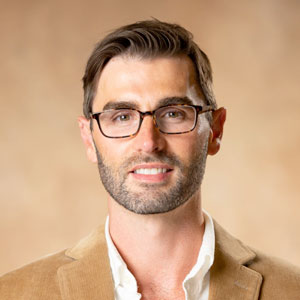
Researchers know that youth who identify early in life as LGBTQ may encounter challenges after coming out to family and friends, including rejection. Yet, very little is known about how a youth’s positive and negative experiences with sexual identity development may impact their mental health. UNC School of Social Work assistant professor Will Hall and fellow researchers hope to provide more answers to these questions.
The National Institutes of Health recently awarded Hall a $1.5 million RO1 grant for a study that will focus on better understanding the emotional experiences sexual minority youth encounter during the development of their sexual identities. Long-term, researchers hope to learn more about the strategies that these youth may use to cope, especially with feelings of anxiety and depression that result from these experiences.
Current research shows that LGBTQ youth have one of the highest suicide rates among any demographic group and one of the highest rates of depression, Hall said. Previous studies have also connected these rates to the personal rejection many LGBTQ youth face, including from their own parents.
“Over half of LGBTQ youth are struggling with depression, and 40% or more are thinking about suicide, planning suicide or have attempted suicide. Those numbers are startling,” Hall said. ”So, even though society has progressed on LGBTQ issues, these mental health disparities persist. Even though our society is more accepting, we don’t currently have specific interventions for this population group to help them.”
In addition to Hall, the study’s research team includes School of Social Work faculty, Mimi Chapman and Kirsten Kainz; UNC’s Paul Mihas from the Odum Institute for Research in Social Science; Jeremy Goldbach with the Brown School of Social Work at Washington University in St. Louis; School Ph.D. student Hayden Dawes and incoming doctoral student Denise Yookong Williams.
For their study, the colleagues plan to recruit 315 LGBTQ youth, ages 18-20, from the Triangle area, including from the campuses of UNC, N.C. State, and N.C. Central. A significant part of the study will involve interviews with participants to learn more about the history of their sexual identity, including the ages in which they realized they had a queer sexual attraction and came out to themselves and to others, their first sexual activity as well as their first romantic relationship, Hall explained. The study aims to provide an updated perspective on the LGBTQ experience, Hall said.
“If you look at the literature on LGBTQ identity development, most of it is based on outdated theories that talk about how people go through this sequential stage process,” he said. “So, part of this study focuses on the theoretical and shifting the literature to show that today, LGBTQ identities can take many different pathways. People might first identify as gay and later as bisexual or queer, or they may have more than one identity label.”
Study questions will also target participants’ mental health, including their experiences with depression, thoughts of suicide or suicide attempts. The goal is to offer a more updated and complete picture of the emotions surrounding the identity development of LGBTQ youth, given that most of the current literature on the subject is also outdated, Hall said.
“The older theories paint identity development as this difficult dramatic struggle, which for many people it is, but for many others, there are also these more affirming or more complicated and nuanced trajectories with positive and negative experiences interwoven,” he said. “That’s the theoretical part we’re trying to shift.”
Hall plans to begin recruiting participants for the study by next spring. Ultimately, researchers think the results could offer valuable insights on the protective factors and coping strategies of LGBTQ youth. Such information could lead to new resources and interventions to assist mental health professionals who work with LGBTQ youth, Hall said.
“What I really want to accomplish through this project and subsequent related ones are practice guidelines for mental health professionals who are working with LGBTQ youth as they’re going though these identity and mental health experiences and challenges,” he said. “I want practitioners to be able to recommend resources that are helpful and that have shown with evidence to make a positive difference. I want them to be able to identify the kinds of situations or events that are often red flags for mental health distress so that we can intervene earlier.”

